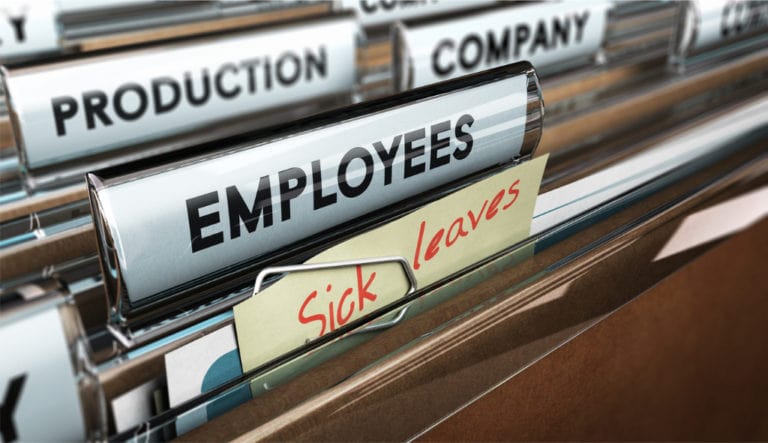FAQs on Productivity Quotas: Are they Legal?

Losing your job is always difficult, particularly when you have worked very hard to be a good employee. Recently, some large corporations have been criticized for having unrealistic expectations regarding employee performance, and have fired employees for failing to be sufficiently productive at work. Here are some frequently asked questions that you may find helpful if you have been fired for failing to meet productivity quotas:
What are productivity quotas?
Productivity quotas are efficiency standards that an employer sets for employees. In other words, the employee is required to meet certain goals at work. Job performance and employee evaluations can be based on whether they meet productivity goals. For example, in a manufacturing plant, the productivity quota could require an employee to assemble "X" number of units per hour. Another example of a productivity quote would be for a delivery person to deliver "X" number of packages per shift. Failure to meet these goals would result in a poor performance evaluation.
Productivity quotes are often unilaterally established by employers, and employees have little or no input on what the productivity quotas are or whether they are realistic. As a result, employees feel tremendous pressure and stress to meet these goals to avoid a bad evaluation and possibly termination.
Are productivity quotas against the law?
No. Unfortunately, for the most part, productivity quotas are not against the law because employers have the right to evaluate the efficiency of employees. However, there are many local, state and federal laws that protect employees and productivity quotas do play a role in the larger question of whether an employee is the victim of an unlawful termination. For example, an employee may have a disability that is protected under the Americans with Disabilities Act which requires employers to provide a reasonable accommodation which may include an adjustment to any existing productivity quotas.
Also, failing to meet productivity quotes cannot be a pretext for an unlawful termination based on age, race, disability or protected activities including collective bargaining and whistleblowing. Other factors that must be considered with productivity quotas is whether employees are forced to forgo lawful meal and rest breaks in order to meet goals. In other words, employees are entitled to breaks under the law which includes proper compensation for tasks like clocking in or changing in to uniform. Employers are not allowed to penalize employees by setting productivity goals that encourage or require employees to work through breaks or not receive proper compensation. If you have been fired for failing to meet productivity goals, you should consult with an experienced labor attorney to determine whether the termination was lawful.
Can I be fired for failing to meet productivity quotas?
There is no simple answer to whether you can be legally fired for failing to meet productivity goals. Employers should have several ways to evaluate employee performance, and productivity goals should be one of many factors. However, all employment terminations must be lawful. In other words, if the only factor that leads to losing your job is failure to meet productivity quotas, there may be grounds to challenge that decision. For example, federal labor law requires a safe and secure workplace that is free of hazards. Therefore, employers cannot create a situation where the workplace is hazardous due to productivity quotas that would require employees to sacrifice safety in order to reach the goals out of fear of being fired.
California law offers even stronger protections for employees and requires every employer to have an injury and illness prevention program which must include safety training and safe work practices. Moreover, according to California Labor Code section 6401, employers must “adopt and use practices, means, methods, operations, and processes which are reasonably adequate to render such employment and place of employment safe and healthful.” Therefore, unrealistic productivity quotas could threaten the safety and health of employees which employers are required by law to protect. Labor law is complex and whether your have a cause of action depends on the specific facts. You should consult an experienced labor attorney to discuss your case if you have been terminated.
Is California an “at-will” employment state? What does that mean?
Yes. California is an “at-will” state which generally means an employer may fire an employee at any time for any reason without “good cause.” Good cause means a reason for an employer to fire an employee such as insubordination or dishonesty. Therefore, as an at-will employment state, employers in California do not have to have good cause to fire an employee. However, the employee may not be fired for an illegal purpose or in violation of the employee’s rights.
All employees have rights, and employees in California benefit from some of the country’s strongest protections. So, even though California is an at-will state, which seems to allow an employer to fire an employee for any reason whatsoever, including failure to meet productivity quotas, the reality of labor law is much more complex. In most cases, you will need the advice of an experienced labor attorney to assess your case and file a lawsuit if you have been the victim of an unlawful termination.
FREE CONSULTATION
Srourian Law Firm, with locations in Los Angeles, Westwood, Woodland Hills, and Orange County is experienced in all aspects of employment law including termination based on productivity quotas and have aggressively represented employees in Los Angeles, Hollywood, Santa Monica, Orange, Irvine, Anaheim, Santa Ana, Newport Beach, Costa Mesa, Fullerton, Tustin, Mission Viejo, San Clemente, Garden Grove, Laguna Niguel, Brea, Fountain Valley, Aliso Viejo, Yorba Linda, Westminster, Laguna Hills, Cypress, and La Habra.
If you or someone you know suffered employment violations as an employee including termination based on productivity quotas, you may have certain employee rights under state and federal law and may be entitled to overtime wages, meal breaks and rest breaks; as well as compensation as a part of the class action lawsuit. Please contact us to speak with one of our lawyers for a free consultation.
Emergency Supplemental Paid Sick Leave Law to Assist Workers Affected by COVID-19

On April 7, 2020, Mayor Eric Garcetti signed an emergency order to modify the paid sick leave policy enacted by the Los Angeles City Council in March. Supplemental paid sick leave provides vital financial aid to employees unable to work due to COVID-19. Specifically, companies based in L.A. with at least 500 employees locally or 2,000 nationally must provide additional paid sick leave up to 80 hours to a broad range of employees. Smaller businesses must also provide paid sick leave benefits as well. While Mayor Garcetti’s order expands the businesses that are exempt from the law passed by the city council, the law also ensures that many employees are still protected and entitled to supplemental paid sick leave during the unprecedented worldwide pandemic.
What are the eligibility requirements?
To be eligible, employees must have been an employee working in Los Angeles between February 3, 2020 and March 4, 2020. Under the law, supplemental paid sick leave must be provided if the employee:
- is unable to work due to required or recommended self-quarantine;
- is at least 65 years old with an underlying medical condition;
- must provide care to a relative that is under quarantine; or
- must provide care for an elderly family member or a child.
What businesses are exempt?
State and federal lawmakers are taking action to protect workers’ jobs and ensure employees receive adequate financial support while at the same time, lawmakers must not place too much burden on businesses. As a result, Mayor Garcetti hopes the emergency order strikes the “necessary balance of these interests.” As a result, there are exemptions for businesses such as health and emergency care providers, global delivery services, new businesses, and government agencies serving the public health. The most significant modification to the city council’s policy was the additional eligibility requirement by Mayor Garcetti that workers be based in L.A
What do the benefits consist of?
The actual paid sick leave benefits under the law largely depend on the size of the employer. For example, full-time employees based in L.A. working for an employer with over 500 local employees (or 2,000 nationally) must provide 80 days of paid sick leave. Businesses with 100 employees or more, but under 500 employees, must provide 14 supplemental paid sick leave days if the employee is affected by COVID-19.
Smaller businesses with less than 100 employees, but more than ten must provide five days of paid sick leave and access to short-term disability benefits and paid family leave. Finally, small business with less than 10 employees and revenue less than $1 million are not required to provide supplemental paid sick leave and are exempt.
As Los Angeles, and the world, cope with COVID-19 and the disruption to the economy and businesses, important laws are being enacted to provide necessary protection to employees and businesses alike.
Employees in California already have the right to sick leave under the Healthy Workplace Families Act of 2014 and the Federal Medical Leave Act, but recent laws have been enacted to provide additional rights during the pandemic.
FREE CONSULTATION
Srourian Law Firm, with locations in Los Angeles, Westwood, Woodland Hills, and Orange County is experienced in all aspects of employment law including the right to paid sick leave and have aggressively represented employees in Los Angeles, Hollywood, Santa Monica, Orange, Irvine, Anaheim, Santa Ana, Newport Beach, Costa Mesa, Fullerton, Tustin, Mission Viejo, San Clemente, Garden Grove, Laguna Niguel, Brea, Fountain Valley, Aliso Viejo, Yorba Linda, Westminster, Laguna Hills, Cypress, and La Habra.
If you or someone you know suffered employment violations as an employee entitled to supplemental paid sick leave, you may have certain employee rights under state and federal law. workers may be entitled to paid sick leave; and may be entitled to compensation as a part of the class action lawsuit. Please contact us to speak with one of our lawyers for a free consultation.


